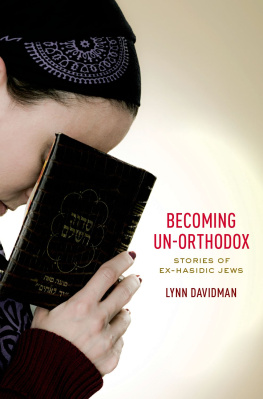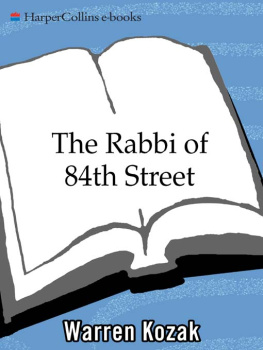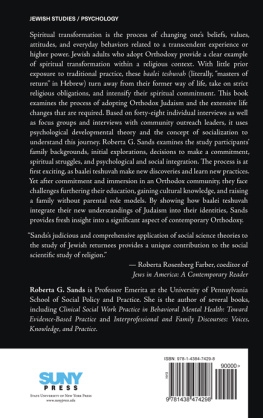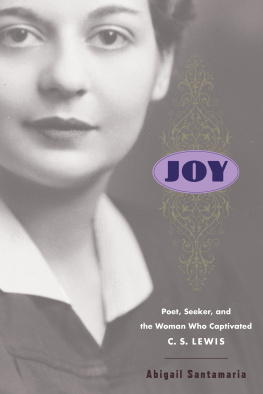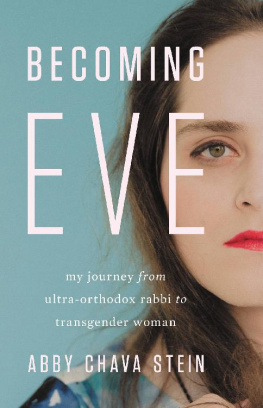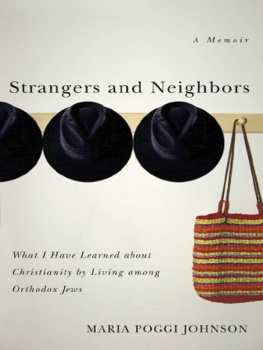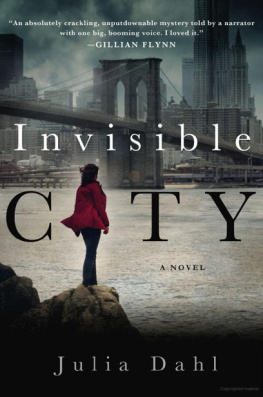Lynn Davidman - Becoming Un-Orthodox : Stories of Ex-Hasidic Jews
Here you can read online Lynn Davidman - Becoming Un-Orthodox : Stories of Ex-Hasidic Jews full text of the book (entire story) in english for free. Download pdf and epub, get meaning, cover and reviews about this ebook. year: 2014, publisher: Oxford University Press USA, genre: Religion. Description of the work, (preface) as well as reviews are available. Best literature library LitArk.com created for fans of good reading and offers a wide selection of genres:
Romance novel
Science fiction
Adventure
Detective
Science
History
Home and family
Prose
Art
Politics
Computer
Non-fiction
Religion
Business
Children
Humor
Choose a favorite category and find really read worthwhile books. Enjoy immersion in the world of imagination, feel the emotions of the characters or learn something new for yourself, make an fascinating discovery.
- Book:Becoming Un-Orthodox : Stories of Ex-Hasidic Jews
- Author:
- Publisher:Oxford University Press USA
- Genre:
- Year:2014
- Rating:5 / 5
- Favourites:Add to favourites
- Your mark:
- 100
- 1
- 2
- 3
- 4
- 5
Becoming Un-Orthodox : Stories of Ex-Hasidic Jews: summary, description and annotation
We offer to read an annotation, description, summary or preface (depends on what the author of the book "Becoming Un-Orthodox : Stories of Ex-Hasidic Jews" wrote himself). If you haven't found the necessary information about the book — write in the comments, we will try to find it.
Becoming Un-Orthodox : Stories of Ex-Hasidic Jews — read online for free the complete book (whole text) full work
Below is the text of the book, divided by pages. System saving the place of the last page read, allows you to conveniently read the book "Becoming Un-Orthodox : Stories of Ex-Hasidic Jews" online for free, without having to search again every time where you left off. Put a bookmark, and you can go to the page where you finished reading at any time.
Font size:
Interval:
Bookmark:


Oxford University Press is a department of the University of Oxford. It furthers the Universitys objective of excellence in research, scholarship, and education by publishing worldwide.
Oxford New York Auckland Cape Town Dar es Salaam Hong Kong Karachi Kuala Lumpur Madrid Melbourne Mexico City Nairobi New Delhi Shanghai Taipei Toronto
With offices in Argentina Austria Brazil Chile Czech Republic France Greece Guatemala Hungary Italy Japan Poland Portugal Singapore South Korea Switzerland Thailand Turkey Ukraine Vietnam
Oxford is a registered trade mark of Oxford University Press in the UK and certain other countries.
Published in the United States of America by Oxford University Press
198 Madison Avenue, New York, NY 10016
Oxford University Press 2015
All rights reserved. No part of this publication may be reproduced, stored in a retrieval system, or transmitted, in any form or by any means, without the prior permission in writing of Oxford University Press, or as expressly permitted by law, by license, or under terms agreed with the appropriate reproduction rights organization. Inquiries concerning reproduction outside the scope of the above should be sent to the Rights Department, Oxford University Press, at the address above.
You must not circulate this work in any other form and you must impose this same condition on any acquirer.
Library of Congress Cataloging-in-Publication Data Davidman, Lynn, 1955 Becoming un-orthodox : stories of ex-Hasidic Jews / Lynn Davidman. p. cm.
Includes bibliographical references and index.
ISBN 978-0-19-938050-3 (hardcover : alk. paper)ISBN 978-0-19-938051-0 (ebook)
ISBN 978-0-19-938052-7 (ebook) 1. Orthodox Judaism-Relations-Nontraditional Jews
2. Ultra Orthodox Jews-Unites States-Anecdotes. I. Title.
BM197.6.D38 2015
296.8'32-dc23 2014007443
1 3 5 7 9 8 6 4 2
Printed in the United States of Americaon acid-free paper
This book is dedicated to my late brother, Mark Davidman, whose energy and spirit rested on my left shoulder as I wrote and completed this book.
You gain strength, courage and confidence every time you stop to look fear in the face. We must do that which we think we cannot.
Eleanor Roosevelt
In addition to the familiar division of contemporary Jewry into Orthodox, Conservative, and Reform groups, there are important distinctions within the Orthodox communities. The primary division is between the Modern Orthodox and the Haredim, who actually consist of two distinct groups. One group is the Hasidic communities, for whom mysticism is important; and the other is referred to as Yeshivish, due to their emphasis on mens study of ancient texts in institutes of higher learning. The term Haredim refer to both Hasidim and the Yeshivish. Thirty-eight of my forty interviewees were ex-Hasidim; there were two ex-Yeshivish men in my study as well. A glossary at the back of the book defines unfamiliar terms.
My first expression of gratitude is to all the women and men who participated in this research and bravely shared their life stories with me. This book would not exist without the generosity of the eighty Hasidic (Ultra-Orthodox) defectors whom I interviewed for this book. All the ex-Hasidic Jews with whom I spoke were open about sharing with me their life stories and, in response to my questions, particularly their accounts of how they came to leave their strictly religious enclaves. I know from my own experience, and I was highly aware in the interviews, that many aspects of these stories were painful to reconstruct. I appreciate that each of you was willing to go back to the past and attempt, within our discussions, to reconstruct a life story that seeks to establish coherence between the period before you left your enclaves, and your lives since.
As I worked on this book, in Providence, Rhode Island and in Lawrence, Kansas, I have been blessed with many friends, colleagues, and research assistants, all of whom contributed in significant ways to the completion of this process. It was in a conversation with Shelly Tenenbaum that we came up with the idea for this project. When I began this research, four students at Brown UniversityKira Ganga Kieffer, Annie Lewis, Maxine Sharavsky, Elizabeth Sherworked with me on the initial coding and sorting of data according to the themes I identified in my interview transcripts. In addition, without my asking, they wrote memos offering insights on some of the themes, relating them to material they had read, or to their own life experiences.
Two years later Andrea Titus began working with me in her last year at Brown, 20072008. Andrea deeply invested herself in all tasks related to this project. In the spring of 2008 we began to work on an article based on the interviews. In order to further develop our coauthored essay, I persuaded her to spend the summer with me in Lawrence. Andrea was an amazing research assistant. She took initiative, worked efficiently, wrote beautifully, and was an intellectually stimulating partner during our work together. She read and summarized relevant research literature, made comments on my drafts, and rewrote sections of them until by the end of the summer we had prepared a near-final version for submission. We became friends as we worked together so closely over an extended period of time, and we are still in touch.
At the University of Kansas I had the good fortune of finding several graduate students who were interested in my project and worked with me for various periods of time over the last five years. Chelsea Bailey, Ray Sin, Ben Gray, Adrianne Showalter Matlock, Michelle Glorioso, Nathan Moser, and Jon Burrow-Branine all spent time playing and thinking with me, in the intellectual playground of my developing ideas. In the last few months of my final push to completion, Jon came back to help me get to the finish line. He read drafts of three chapters and made helpful comments on each.
Two graduate students, in particular, Nathan Moser and Chelsea Bailey, stand out for their superb research, analytic and writing skills, dedication to the project, as well as their steady support and friendship. Nathan, who had come to the University of Kansas to study with me, worked hard on this project for over a year, from July 2011 through September 2012. We were already friends, but our close work together over that time cemented a lifelong friendship. We had numerous brainstorming, synergistic conversations in which we strove to weave together the analytic foci of the book: narratives and embodied practices. Eventually the light bulb flashed, and we articulated an innovative argument about the mutual construction of narratives and embodied practices: Meaningful bodily routines and rituals make sensefor individuals as well as communitiesonly when they are situated within the framework of a coherent, overarching metanarrative.
I got to know Chelsea, a graduate student in sociology, through the seminars she took with me. I was impressed by her ability to quickly grasp reading material, ask thoughtful questions, and write up her own research in a clear and engaging manner, always situating her work within the larger analytic frameworks of the field. In the spring of 2013, knowing I needed some extra help, I asked her to work with me on the final version of the book. Immediately she became deeply engaged with, enthusiastic, and committed to working hard on this book. Chelsea read multiple iterations of chapter sections and entire chapters, offering suggestions that helped me further clarify my ideas and how I wrote about them. During the two months we worked together, spending almost twenty hours a week in my study, we worked hard but also had fun, becoming close in the process. In November and December 2013 I needed a bit of help with all the final tasks involved in completing the book. I asked Chelsea if she could spare some time for a couple of months, and she told me it felt appropriate for her to reenter the project in its final stages and see it through to completion. Her help was invaluable in my completing the book on time.
Font size:
Interval:
Bookmark:
Similar books «Becoming Un-Orthodox : Stories of Ex-Hasidic Jews»
Look at similar books to Becoming Un-Orthodox : Stories of Ex-Hasidic Jews. We have selected literature similar in name and meaning in the hope of providing readers with more options to find new, interesting, not yet read works.
Discussion, reviews of the book Becoming Un-Orthodox : Stories of Ex-Hasidic Jews and just readers' own opinions. Leave your comments, write what you think about the work, its meaning or the main characters. Specify what exactly you liked and what you didn't like, and why you think so.

